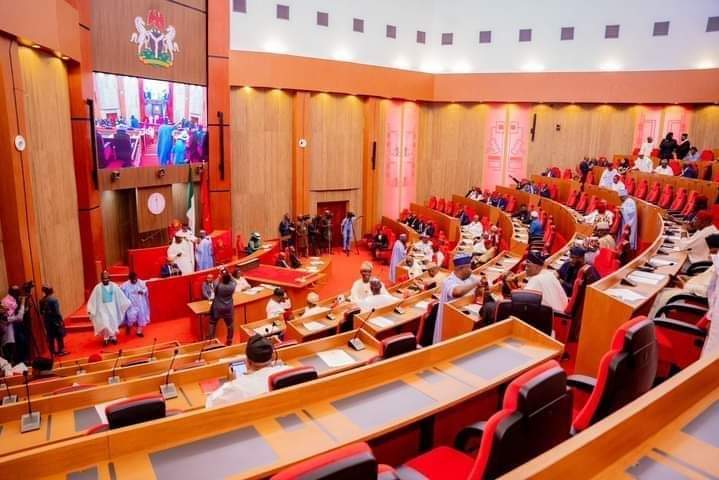Headline
Senate extends 2024 budget capital implementation deadline to December

In a significant legislative move, the Nigerian Senate has approved a six-month extension for the implementation of the capital component of the 2024 national budget.
The new deadline now stretches to December 31, 2025, moving beyond the original cut-off date of June 30.
The decision was made during Tuesday’s plenary session following the presentation of an amendment bill to the 2024 Appropriation Act. The bill, sponsored by Senator Solomon Adeola (APC, Ogun West), who chairs the Senate Committee on Appropriation, was swiftly passed through its first, second, and third readings without opposition.
Deputy Senate President, Jibrin Barau, announced the resolution after the adoption of the report from the Senate Committee on Supply.
Adeola said the extension was necessary to allow the federal government to complete various ongoing capital projects that have been delayed due to revenue shortfalls and funding constraints.
“We must not allow these important national projects to be abandoned due to time constraints,” Adeola said.
“Extending the implementation period will ensure value for money and improved service delivery.”
This marks the second time the 2024 capital budget implementation has been extended.
In December 2024, President Bola Tinubu requested and received approval to move the original deadline from December 31, 2024, to June 30, 2025.
That extension was aimed at ensuring the full utilisation of capital allocations and completion of key infrastructure projects.
With the June deadline approaching and many projects still uncompleted, lawmakers have now opted for an additional six months to avoid waste and stalled development.
The extension means that Nigeria will continue operating two budgets simultaneously — the extended 2024 capital budget component and the already operational 2025 national budget.
While critics argued that repeated extensions reflect weak execution capacity within Ministries, Departments, and Agencies (MDAs), proponents insisted that the move was pragmatic and ensures continuity in governance.





















